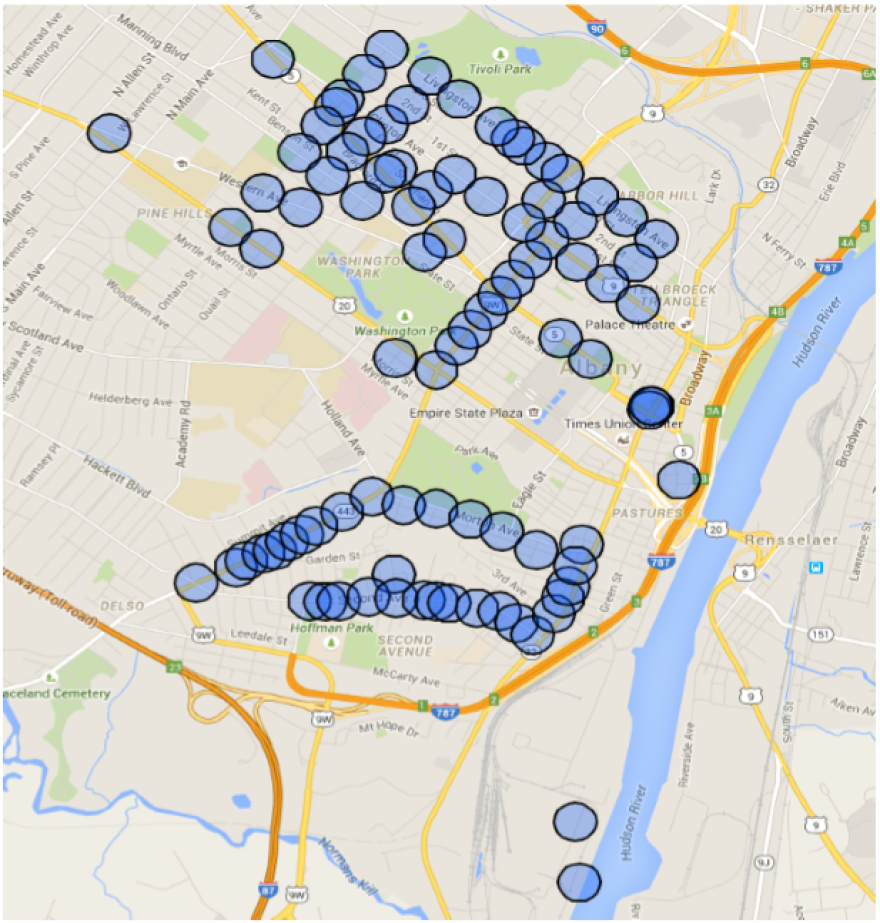Last month, New York regulators revoked their approval of Charter Communications' merger with Time Warner Cable and ordered the company to find another cable provider for its more than 2 million customers in the state. The move is encouraging municipalities to find alternatives to expensive cable internet service.

In August 2009, then-Albany Mayor Jerry Jennings announced that Tech Valley Communications and the city had received a state grant to expand Albany FreeNet, the free wireless Internet network. Now, nine years later, efforts to bring free or low-cost high-speed Internet to the residents of Albany have been moving along at dial-up speed.
New Yorkers interested in fiber-based internet and high-speed broadband know all about sticker-shock: In late April Spectrum announced a new high-speed upstate New York home broadband service with "no modem fees or data caps. Priced at $104.99 per month for new customers" — keyword "new" as existing customers could pay much more.
In Albany’s Pine Hills neighborhood, Common Councilor Owusu Anane is introducing legislation to establish a city commission to research "the feasibility, logistics, and financing alternatives related to creating a municipality-run, citizen-owned world class internet service."

Anane, who envisions internet offered as a city service, intends to form a group to brainstorm either in person or via Skype with officials in Chattanooga, Tennessee, which boasts the fastest, most affordable internet in the United States, created years before "Google fiber." "Having high-speed internet is no longer a luxury. It's a necessity. As a teacher, we have homework that is given as Google classroom, where it is vital that a student has to be able to go on the internet and have access to the Google classrooms and look at the presentations. When you're looking at individuals who are looking for job opportunities, they're doing this on the internet. Individuals are not going in the newspaper to look for job opportunities. So, just like water and other city services, this has become a necessity for individuals to have here in the city of Albany."
Five years ago, then-Mayor Elect Kathy Sheehan promised residents and businesses better online access, telling WAMC: "Access to the internet. High-speed internet. People, when they’re renting apartments now, they expect those types of amenities. They expect to have cable, they expect to have high speed. And we need more players in Albany, because we’re trying to attract that culture of the entrepreneurs, the tech culture because that’s really going to be the future of our city."
A broadband study was conducted, discussions followed. During a downtown event celebrating Albany’s inclusion on a 2015 list of 50 cities Google hailed as the new “digital capitals” of America, a Google representative admitted no upstate New York cities were likely to participate in any Google broadband plans in the near future.
A "Broadband Initiative Working Group" was launched. Another study was conducted. Anane says the study doesn’t discuss any real solution to quality affordable internet services or municipal internet. "With the decision that was made with the Public Service Commission, more now than ever we need a city-owned and operated internet service. We had Time Warner, we had Spectrum, and both entities have let us down. And I believe that moving forward, city-owned and operated internet would be the right election. That'll put the public interest first."
Congressman Paul Tonko seems to be on a similar page: "We know the importance of broadband. It can be the difference between success and failure, for students doing homeowrk, job candidates building toward a new career, and entrepreneurs starting a small business."
Tonko was set to hold a Broadband Listening Session in Duanesburg Friday.
Meantime Albany has yet to follow on an initiative to expand the footprint of its free Wi-Fi. Mayor Sheehan's Chief of Staff Brian Shea suggests bandwidth-hungry residents will have to wait.
Responding by email to a request for comment, Shea writes "As you may know, Albany FreeNet (free WiFi) is still operating in certain high traffic areas in the city – but it’s first generation technology that cannot be built upon. Buying back our streetlights would provide the City the opportunity to partner with 5G companies to use that infrastructure to provide a baseline of internet service city-wide." He added "it’s something we intend to pursue aggressively."





